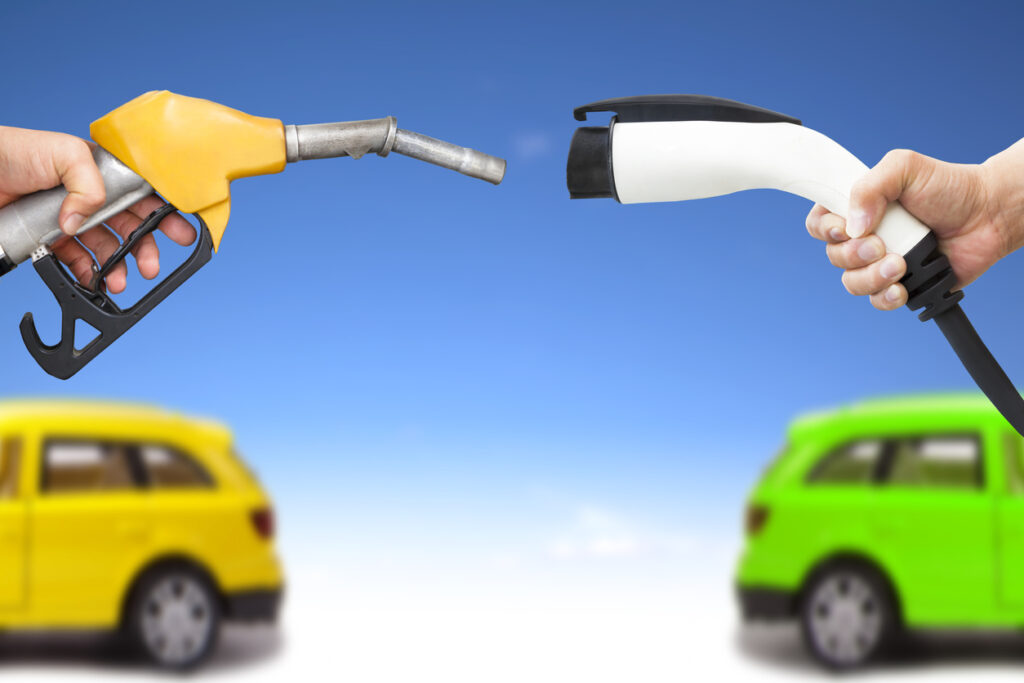As we step into 2025, the debate between electric vehicles (EVs) and gasoline-powered cars is more relevant than ever. With rising fuel costs, stricter environmental regulations, and advancements in EV technology, many car buyers are wondering: Should I buy an electric or gas car?
In this guide, we’ll compare electric vs. gas cars in terms of performance, cost, maintenance, and environmental impact to help you make the best decision.
Performance & Driving Experience 🏎️
Electric Cars (EVs) ⚡
✅ Instant torque for quick acceleration 🚀✅ Smooth, quiet driving experience 🔇✅ Fewer moving parts = less vibration
Gasoline Cars ⛽
✅ Longer driving range per refill 🛣️✅ More power in high-performance models 🏁✅ Refueling is faster compared to charging
🔍 Verdict: If you prefer instant acceleration and a quieter ride, EVs win. If you need long-distance travel without charging concerns, gas cars have the edge.
Cost of Ownership 💰
Upfront Cost
EVs: Generally more expensive upfront but eligible for tax incentives.
Gas Cars: Lower starting price but higher long-term fuel costs.
Fuel vs. Charging Costs
EVs: Charging at home is cheaper than gasoline (especially with solar panels 🌞).
Gas Cars: Fuel prices fluctuate and are generally more expensive over time.
Maintenance Costs
EVs: Fewer moving parts = lower maintenance costs (no oil changes, fewer repairs 🔧).
Gas Cars: Regular oil changes, spark plug replacements, and engine repairs.
🔍 Verdict: EVs have a higher upfront cost but lower operating expenses. If you want to save money in the long run, an EV is a smarter choice.
Charging & Refueling Convenience ⛽⚡
Electric Cars ⚡
✅ Charge at home overnight 🔋
✅ Growing number of fast-charging stations 🚀
❌ Charging takes longer than refueling ⏳
Gasoline Cars ⛽
✅ Fast refueling in a few minutes ⏩
✅ More gas stations available
❌ Gas prices can fluctuate 📉📈
🔍 Verdict: Gas cars are more convenient for long trips, but EVs offer home charging benefits. If you have access to charging, an EV is a great choice.
Environmental Impact 🌍
Electric Cars ⚡
✅ Zero tailpipe emissions 🌱
✅ Use of renewable energy reduces carbon footprint
❌ Battery production has some environmental concerns (mining for lithium & cobalt)
Gasoline Cars ⛽
❌ CO₂ emissions contribute to climate change 🌎
❌ Dependence on fossil fuels 🛢️
✅ Some newer gas cars are more fuel-efficient
🔍 Verdict: EVs are better for the environment and help reduce greenhouse gas emissions.
Longevity & Resale Value 📅
Electric Cars ⚡
✅ Battery life lasts 8-15 years 🔋
✅ Fewer mechanical issues
❌ Resale value depends on battery health
Gasoline Cars ⛽
✅ Well-maintained gas cars can last 15+ years 🚗
✅ Some gas models hold resale value longer
❌ More wear & tear on mechanical parts 🛠️
🔍 Verdict: EVs require less maintenance, but battery degradation affects resale value. Gas cars have a longer track record for durability.
Conclusion: Which One is Best for You? 🤔
Choose an Electric Car (EV) if:
✔ You want lower maintenance and fuel costs✔ You prefer instant torque and a quiet ride✔ You have access to home or workplace charging✔ You care about reducing carbon emissions 🌱
Choose a Gasoline Car if:
✔ You drive long distances often and don’t want to rely on charging infrastructure✔ You prefer quick refueling at gas stations✔ You want lower upfront costs✔ You need a high-performance vehicle 🏁



